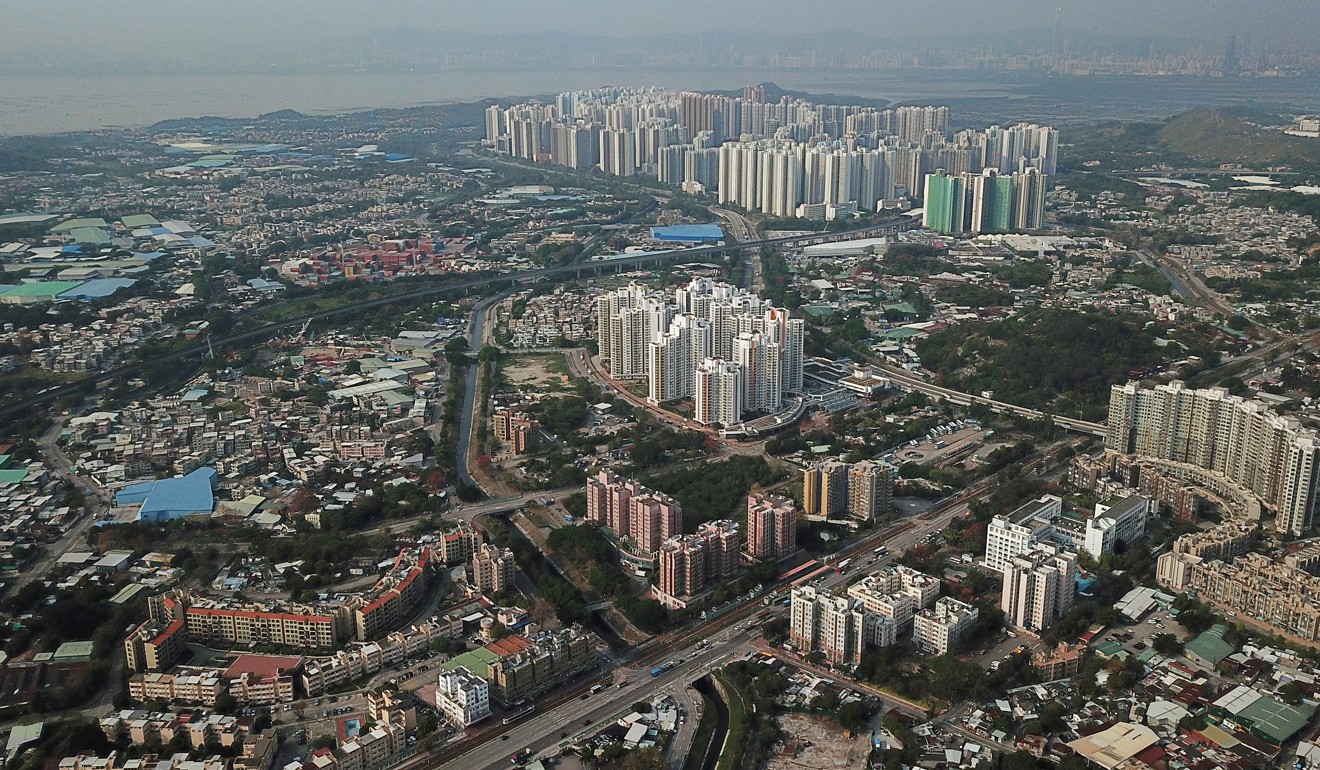
Hong Kong housing: ‘useless’ land supply consultation fails to address concerns over affordable homes, participants say
Government-appointed Task Force on Land Supply hands out more than 14,000 questionnaires in two weeks – and collects fewer than 10 per cent
A public consultation on land supply in Hong Kong has been labelled “useless” by participants who said it failed to address key concerns, such as whether it would result in more affordable housing.
Others questioned whether their opinions would make a difference, suggesting the five-month exercise that ends in September was the government simply going through the motions.
The government-appointed Task Force on Land Supply has handed out more than 14,000 paper questionnaires at six exhibitions across the city since the consultation kicked off two weeks ago. It has collected fewer than 10 per cent, or little more than 1,300 copies, in return.
Post reporters visited three of the 14 roadshows last week, in Kwun Tong, Kowloon City and Yuen Long, and talked to more than a dozen people, some of whom complained their concerns were not fully addressed.
On the questionnaire, each individual has to choose from 18 options to source enough land to plug a predicted shortage of 1,200 hectares for Hong Kong’s housing and economic development.
On May 29, the last day of the three-day exhibition on land supply at Kai Tin Shopping Centre in Lam Tin, the Post observed that the exhibition had failed to pique citizens’ interest.
Now you can help decide Hong Kong’s future from comfort of your own home with new online land supply survey
During the after-work hours of 5.30pm to 7.30pm, fewer than 20 people stopped to take a look, and only about 10 filled in the questionnaires.
Shek Kin-wa, 48, who works in the renovation industry, said he believed the consultation was a government tactic to delay solving Hong Kong’s housing problems, and that even if authorities did manage to find more land, it might not be for affordable homes.

“I think the consultation is useless,” Shek said. “I wouldn’t oppose reclamation if it was for building affordable housing. But the consultation does not mention this. It only asks you whether you support reclamation without telling you what kind of housing they will build.”
Retiree Li Yim-kei, who lives in a flat he bought in Hong Nga Court, a nearby subsidised housing estate, said he was not interested in the consultation because “it will only allow the government and developers to build more luxury housing and make big money, not us”.
Hong Kong is only this big. If you don’t control the number of immigrants, even if you reclaim all the sea around you, it won’t be enough
University student Mango Fan, 20, who spent about 15 minutes completing the survey in Whampoa, said its design to encourage people to choose enough options to fill 1,200 hectares was misleading.
“If you can control the incoming population, there is no need for as much as 1,200 hectares,” Fan said, referring to the daily quota of 150 one-way permits issued to mainland Chinese residents to reunite with their families and settle in the city.
Another resident of Lam Tin, Joe Lam Yat-ming, said: “You can’t just consult people on how to increase land supply. Hong Kong is only this big. If you don’t control the number of immigrants, even if you reclaim all the sea around you, it won’t be enough.”
On average, participants spent 10 to 15 minutes filling in the questionnaires, while many only managing to skim through the background information of the 18 land supply options in the five-page document.
How Carrie Lam’s land supply initiative can bring Hong Kong closer to Beijing
The questionnaire has been criticised as a “dim sum menu” that forces people to choose a minimum number of land supply options, while there is also a belief that the expected 1,200 hectare shortfall is an exaggerated figure.
Task force chairman Stanley Wong Yuen-fai said such comments were “understandable”, but that it would be impossible to map out suitable land uses for each option.
“Land use will have to be determined by detailed planning … We cannot figure out today how much public housing we can yield. It’s just not reasonable,” he said.
Hong Kong’s land supply consultation: two questions to consider
On concerns over other government policies, Wong acknowledged they were interrelated with Hong Kong’s land issues, but said the consultation had to be “laser-focused” given the time and nature.
Dr Victor Zheng Wan-tai, coordinator of the Telephone Survey Research Lab at Chinese University, who is not involved in the consultation, suggested more sub-surveys could be done on each option.

“I don’t know if this is a real or fake public consultation. It seems like the government already has an answer and they’re doing this just as a procedure,” Whampoa resident Thomas Tsui said.
“But on the off chance this isn’t a fake consultation, then at least I’ll have done my duty by voicing my opinions.”
Why Hong Kong housing prices won’t come down even if land supply is increased
Jimmy Chan, who owns a flat in the private market in Yuen Long, said the public engagement was “better than nothing”, but he was disillusioned by the government’s uninspiring efforts to tackle the housing problem.
“They’ve been moving way too slow. We are in dire straits now and they’re not doing anything except ask, ask, ask. Besides increasing land supply, there are a lot of other administrative measures they could take to solve the problem of [high property prices].”
Reader response:



